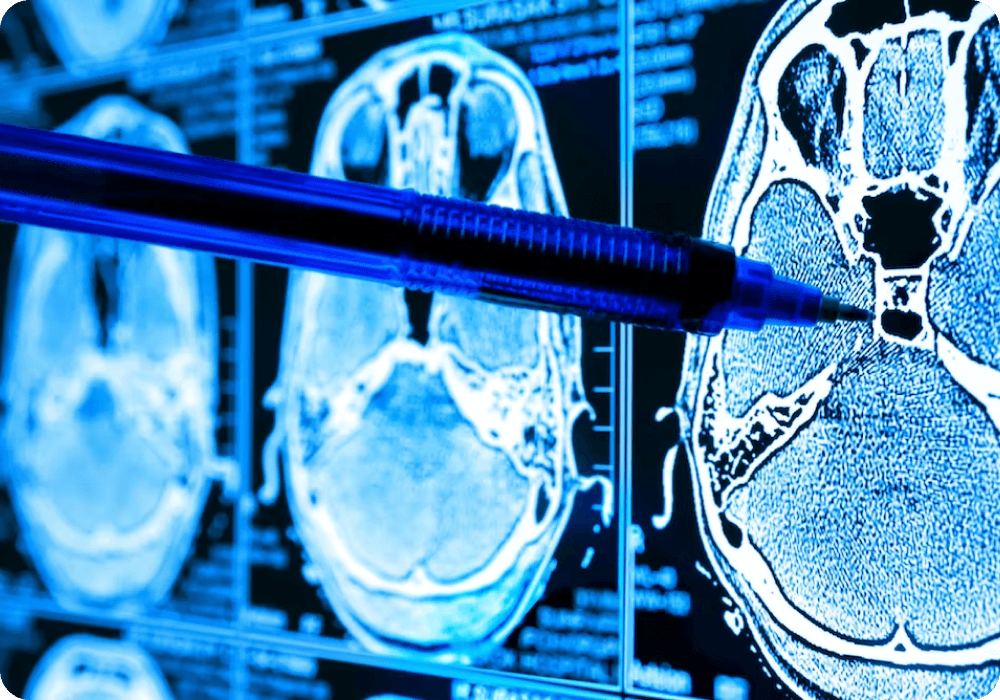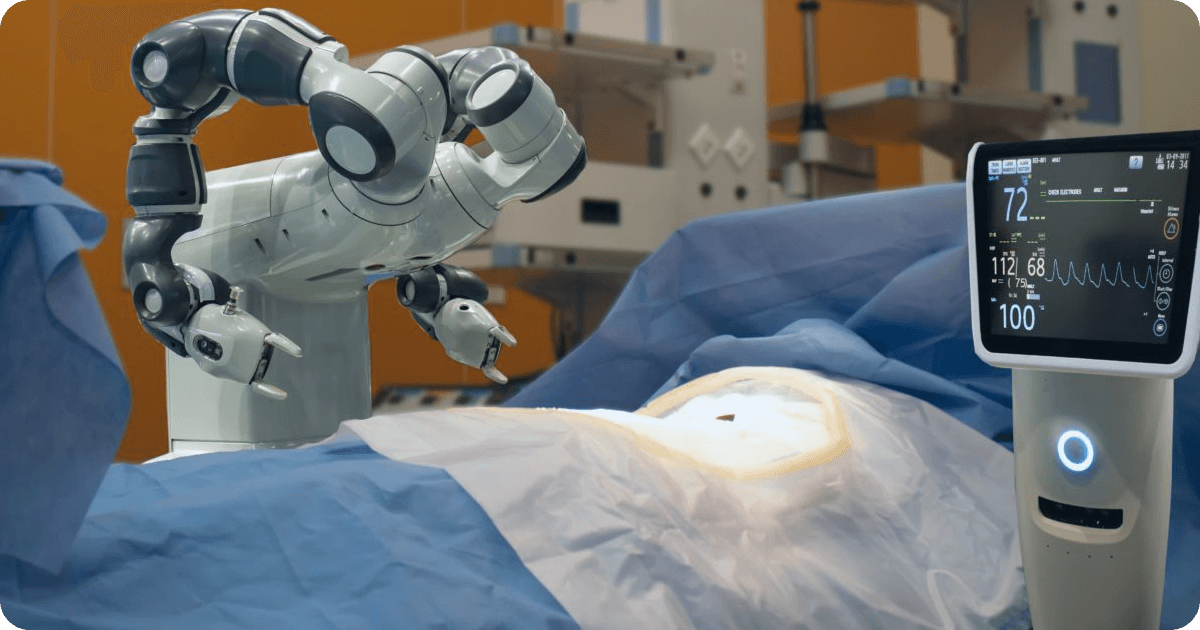The impact of intelligent machines in the transformation of medicine and medical care keeps growing day by day. While many tech companies and medical institutions are developing AI solutions at a fast pace, we know for certain that what we are experiencing today is only the tip of the iceberg – fueled mainly by the fast evolution of machine learning algorithms, a widespread transformation of how we experience medical care is already unfolding.
The extent of the AI revolution in medicine is so wide, so potentially innovative and disruptive, that every member of the healthcare community – physicians, nurses, hospital workers, authorities, entrepreneurs, and even patients themselves – are being challenged by AI technologies to keep up the pace, both to be able to leverage the opportunities they offer, and also to get ready to adapt to the changes it brings.
AI in Medicine: Aspects of an ongoing revolution
The concept of AI represents the capacity of machines to mimic the thoughts and actions of human beings. Though this type of technology has been around for quite a while now, in recent years, it experienced massive acceleration. If you have been following the tech news this past year, you have probably heard about Dall-E or ChatGPT3, the two interactive AI technologies that became publicly available in 2022 that shocked and amused the world with their ability to create images and converse, respectively.
Machine Learning and Medicine
When we talk about machine learning in medicine, a revolution is taking place right in front of our eyes. Whether it be improved diagnosis for a wide array of diseases or enhanced clinical trials, assisted surgery, or automated hospital tasks, it will not be long before the experience of entering into a clinic, participating in a trial, or even interacting with a medical specialist will look completely different.
This is already the case – many of the uses of AI in healthcare have already evolved up to the point in which they impact the lives of millions of patients and healthcare professionals around the world.
What is Machine Learning and how it impacts Medicine
Before we dive deeper into each of these uses, we should back up a little. In order to fully grasp the potential of AI in medicine, we should first have a more clear understanding of what exactly is Machine Learning (ML).
Machine learning is a branch of artificial intelligence that focuses on how computer software gradually incorporates knowledge as it is fed with huge inputs of data. Using statistical techniques, machine learning algorithms can automate processes and solve highly complex problems without the need for human intervention.
Due to its capacity to train machines, machine learning is considered to be crucial for other branches of AI that are also used in medicine, such as Natural Language Processing and Deep Learning (which is generally considered a subfield of Machine Learning).
In the past few years, the evolution of machine learning models has experienced an extraordinary acceleration, leading to a growing influence of this AI technology in a wide variety of activities, including healthcare.
AI and Machine Learning Applications in Medicine
In this article, we will take a look at some of the most crucial, impactful manifestations of artificial intelligence – and machine learning in particular – in today’s medical landscape.
- Cancer Diagnosis
- Virtual Health Assistance
- Targeted Treatment
- Task Automation
- Management of Medical Records
- Outcome Prediction
- Clinical Trials
- Assisted Surgery
- Early Diagnosis
- Drug Development
But it is important to understand that, far from being a depiction of a crystallized reality, the uses of AI in medicine that we will explore below express a highly dynamic field – rest assured, new AI medical technologies will continue to impact medicine and shock the world for quite a while.
10 Uses of Machine Learning AI in Medicine and their Advantages
Now that we have clarified the meaning of the concept of machine learning, let’s move on to explore more thoroughly the uses of machine learning in medicine that we listed above.
Cancer Diagnosis
Cancer is one of the most feared diseases in the world. So, we should all be thankful for the way that machine learning algorithms are aiding medical professionals in performing accurate and timely diagnoses.
Diagnosing cancer at an early stage can make a huge difference. By analyzing medical images such as CT or MRI scans, AI algorithms can identify and classify tumors. They are also able to identify biomarkers for cancer based on genetic and genomic data, which can lead to timely diagnosis.
Machine learning cancer diagnosis reduces errors and can be used to suggest methods for personalized treatment.

Virtual Health Assistance
As machine learning and natural language processing evolve, many of the most simple, lineal health assistance tasks can be performed by intelligent machines, freeing up time for human professionals to focus on the more subtle aspects of patient care.
By interacting with patients, chatbots and virtual health assistants can gather and process data on symptoms to provide relevant and accurate information, suggest treatments, or give orientations to book an appointment.
Some chatbots have also been trained to provide personalized assistance for people struggling with mental health issues and people who suffer from physical impairments, providing reminders and tracking a variety of health indicators.
Targeted Treatment
Leveraging their outstanding capacity to process enormous amounts of data, machine learning algorithms can analyze patient information to identify specific treatment options that are most likely to be effective for a particular patient.
This approach, known as precision medicine or personalized medicine, can be used to determine whether a certain genetic structure matches a treatment or to predict how it will respond to a particular treatment based on a patient’s clinical data.
Also, innovative pharmaceutical companies have developed medications for rare diseases based on machine learning models.
Task Automation
In countries like the US, where there has been a significant advance in healthcare digitalization, administrative tasks still consume almost 20% of the working hours of a healthcare professional. This type of burden – along with other time-consuming, repetitive, not value-adding obligations – can be taken off the shoulders of healthcare workers using AI.
Transferring patients’ medical data to the appropriate professional, checking the eligibility of medical claims, and facilitating and automating the process of booking appointments, are some of the traditional healthcare tasks that are being performed by AI-based platforms based on machine learning models, leading to significant cost and stress reductions, and also reducing errors in administrative processes.
Management of Medical Records
When it comes to patient data, significant pieces of information, those that can provide valuable insights to physicians – and eventually change the outcome of treatment – are always at risk of getting lost in a sea of not-so-relevant information.
Connecting significant data points is one of the most important capacities of machine AI-trained models in general. Using AI to break down data and link pieces of information that would otherwise take years to process, healthcare companies and institutions are driving the development of more proper and timely diagnoses as well as new medicines and drugs.
Outcome Prediction
Another use of machine learning algorithms in medicine is oriented toward anticipating how a certain condition or treatment will unfold.
Pulling data from thousands of previous episodes of other patients and combining them with medical records, images, and laboratory results, machine learning algorithms have been able to create prediction models that anticipate potential outcomes, which include the likelihood of disease progression, possible responses to treatments, or survival.
AI-based models achieve this by identifying patterns after analyzing large amounts of patient data from a wide variety of sources. This leads to many medical benefits, from reducing errors in indicating treatments that are not necessary to aiding the development of personalized treatment plans.
Clinical Trials
One of the traditional issues in evaluating the outcomes of clinical trials has been that they are usually too narrow in terms of patient categories. This means that, in many circumstances, if the data had been analyzed using the proper categories, a potential positive outcome that has gone unnoticed could have been identified.
Again, because of their ability to thoroughly analyze big inputs of data and complexly connect different data points, machine learning models can provide researchers with much more accurate measures regarding patient response to treatment.
Machine learning algorithms can also take a look at past trials. Trials and therapies that have been affected by data inefficiencies can now be revisited through retrospective analysis to determine whether certain drugs had been labeled ineffective when they could have produced positive outcomes in certain subclasses of patients.
Assisted Surgery
Even though there have been robots helping doctors in operating rooms since the 80s, the increasing complexity of robot surgical assistance has been fueled by the evolution of motion control technologies that have led to unprecedented levels of precision, speed, and accuracy.
With their enhanced vision and ad-hoc shape and size, these robots are already radically transforming surgery. In this case, it is important to clarify that these devices and machines have not come to replace human surgeons, but rather enhance their ability to perform surgeries with the precision they demand.
Early Diagnosis
In many cases, from cancer to lung disease, early diagnosis can draw the line between an effective or ineffective treatment. For some diseases, such as Parkinson, researchers have known for decades that certain biomarkers could be used for diagnosis, but they simply did not have the tools to analyze them. By analyzing patients’ medical histories, lab results, and other metrics, machine learning algorithms can identify patterns that lead to early diagnosis.
Early diagnosis is one of the fields of healthcare in which the impact of AI and machine learning is already being experienced by millions of patients around the world.
Widespread diseases such as cancer, respiratory and lung diseases, diabetes, and Parkinson’s are already being diagnosed earlier than ever with the help of these AI-based algorithms.
Drug Development
Drug or biological targets are those molecules inside the body that are associated with a certain disease and whose behavior or function can be changed by applying an external entity – namely, a drug. Genetic mutations or biomarkers associated with diseases can be identified using machine learning algorithms that analyze large amounts of genetic or genomic data.
Another use of AI technology in drug development is the optimization of drug candidates, assessing their toxicity and efficacy. Identifying patterns within huge inputs of data can help predict how different types of patients will interact with a particular drug, leading to more personalized treatments and more precise analysis of trials.
Challenges and Limits of AI Technology for Medicine and How to Tackle Them
Even though AI and machine learning represent a massive opportunity for the healthcare industry to tackle some of its most urgent issues, we must also be aware that such a revolutionary transformation never comes without a few challenges.
Of course, we should have all by now overcome fears of Hollywood-type dystopian scenarios in which intelligent machines totally disrupt human societies. Nevertheless, getting to know the challenges posed by machine learning and AI in medicine is key to eventually being able to generate the best possible outcome for medical purposes using these technologies. In the next years, all of us -because this revolution involves everybody from healthcare entrepreneurs to simple patients-, will have to face all or all of these challenges:
- Overcoming adoption barriers by improving confidence, accessibility, perceived value, or trust
- Addressing the necessary cultural change to promote AI adoption in healthcare
- Addressing the need for good regulations and post-market surveillance
- Developing mechanisms to enable effective comparisons of AI systems
- Remaining vigilant to potential dangers such as dataset shift or discriminatory bias
Finally, as in every other field of technology, there is currently a global shortage of the type of data scientists, machine learning engineers, and AI specialists that are needed to fully develop these technologies.
Talent shortages in tech are likely to go on, at least for the upcoming years. And while more professionals are entering the field of ML right now, healthcare companies and institutions need to reach out to specialists and partner with teams that have the experience and expertise to help them be part of this new era of medicine.
This is how they will get the necessary tools to gain a competitive edge and be part of the revolution of artificial intelligence in medicine.












